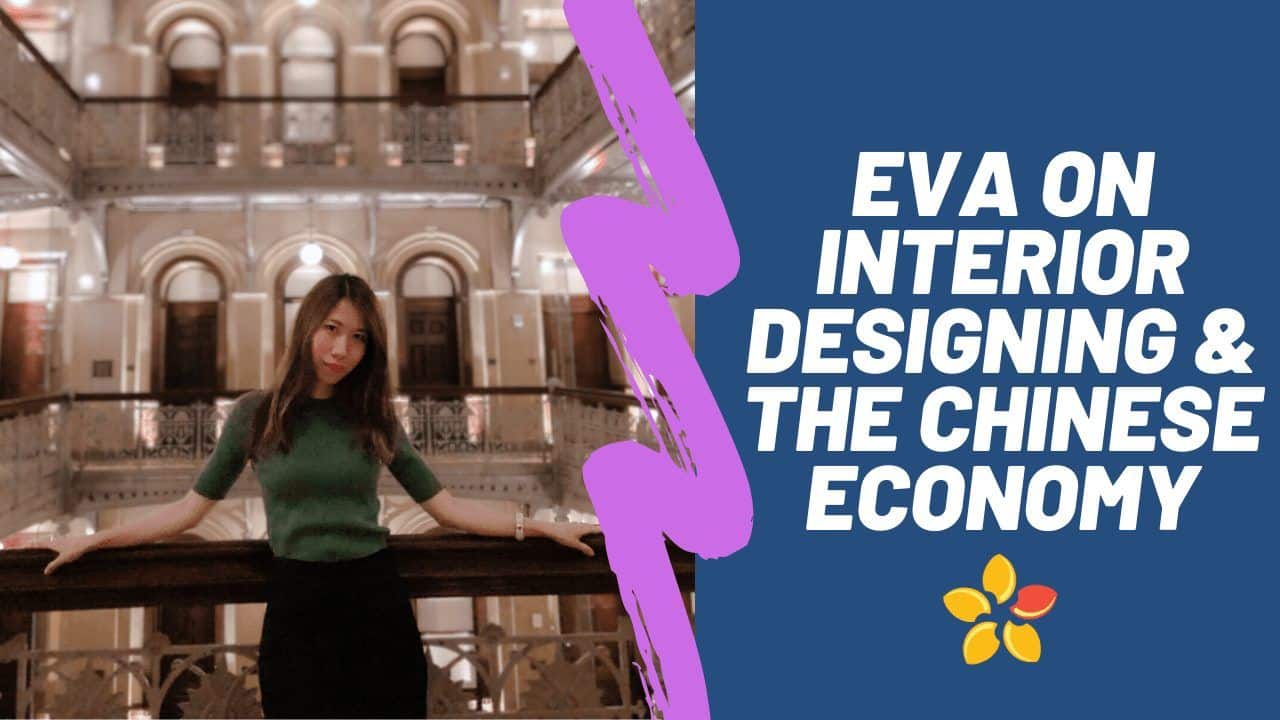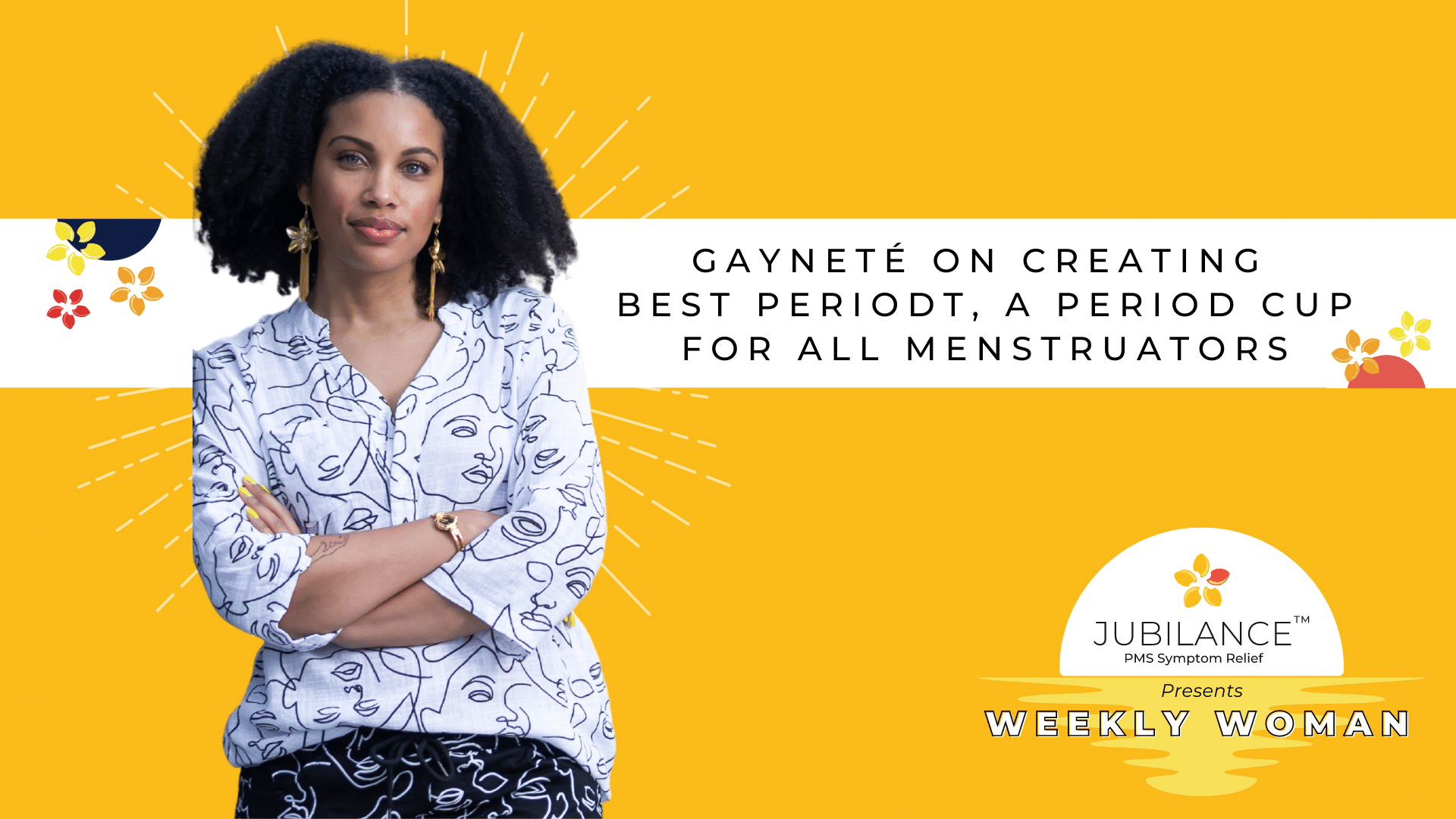Eva Tang is originally from China and has come to New York for Interior Design School, and she’s talking to us today about Design and differences in the field of starting a company in China!
Watch her interview here:
Listen to her interview here:
Read her interview here:
Alice: Hi, everyone. I’m Alice Cash. I’m a Social Media Manager for Jubilance. And today I have Eva joining me.
Eva: Hello.
Alice: Eva is originally from China and has come to New York for Interior Design School, which is amazing, actually right across the street to where we are.
Eva: Yeah.
Alice: Yeah. So welcome. Thank you for being here.
Eva: Thank you for having me.
Alice: Yeah, can you talk a little bit about why you decided to come to New York?
Eva: Yeah. Basically, for attending school here Interior Designing School, yeah.
Alice: Oh, that’s awesome. Yeah, what are the biggest differences that you’ve seen between New York and China?
Eva: Well, it depends on which city that you prefer which and where actually, before New York I was working in Shanghai for 6 years. So if you compare these two cities, it’s quite similar in some ways, but in your people, it’s more diversified here–
Alice: Yeah.
Eva: Yeah, that’s the only difference for me.
Alice: Okay.
Eva: But other sides just like, very open society and then like very diversified with the population so that you see people from all different kinds of backgrounds–
Alice: Uh-huh.
Eva: –which I really love about the big cities like that. So I can learn a lot, so I’m just you know meeting different person, these different people in their life.
Alice: And were you working in interior design in Shanghai?
Eva: No, no, no, no.
Alice: What were you doing?
Eva: Before, I was in Starwood Hotels and Resorts in hospitality. I was doing Human Resources, employer branding for a while, yeah,
Alice: Oh, that’s so interesting. And what really drove you to pursue interior design?
Eva: I guess, after a while in a corporate you will feel like because the company is so big, everything is so sliced up, and then for a very detailed portion of work that you’re touching every day is like, once you get used to that you will feel there’s no challenge anymore.
Alice: Hmm.
Eva: So I was like, okay, I wanna do something more challenging and I still really something that I really passionate about.
Alice: Uh-huh.
Eva: So I thought about what I really love and then reached back to high school that I’d really had this thing passion for interior design, I would ask my desk mate, I was like, “So what’s your home like?” You know and then kind of course, like kind of invited myself to her place just to check out to just see–
Alice: You love just to see how you design it.
Eva: Yeah, Yeah, that was kind of awkward for her but, yeah, with that– yeah, that’s the story that I showed my passion about design. And then, I decided to switch my career to this.
Alice: That’s amazing. And so where do you think are the best places to look at Interior Design in New York?
Eva: Display?
Alice: Yeah, where would you go if you wanted to just see like a great design?
Eva: Oh, if you’re talking about like just the general style or well actually in New York City you can see a lot of styles of interior design. And you can see that just by bar hopping for, you know, going into different restaurants and that’s kind of like part of, really fun part of my personal life that I will just go and, you know, the different part of this one check out, you know, different styles and from different companies and also, yeah, also some historical sides as well.
Alice: Hmm.
Eva: Yeah, like–we have really good historical styles that firms now use inspiration from. Yeah.
Alice: And what is your favorite style? Would you say like modernism or I don’t even know what a style would be?
Eva: Yeah. Yeah, well, I think in terms of styles maybe masonry, actually–
Alice: Oh, that’s so nice.
Eva: –more closer to modern styles. Masonry is one of my favorite because the carving–
Alice: Of course, yeah.
Eva: –it’s very luxurious. And now, I think masonry and more than styles actually is more eclectic in many ways because you know the world is more connected than before.
Alice: Uh-huh.
Eva: So that’s why like those designers also have a lot of different connections from all like all parts of the world. So that they can sort of have their own style without any definition to that like very eclectic, I like that. If you– have you ever been to the Beekman Hotel?
Alice: No, I haven’t.
Eva: It’s in downtown.
Alice: Oh, okay.a
Eva: It’s a very nice landmark hotel. You have to check it out.
Alice: Oh wait, is that the one that like it overlooks the whole lobby?
Eva: Yes.
Alice: Oh, okay. Yeah. Yeah.
Eva: Yeah. That one is very eclectic.
Alice: I just need a picture.
Eva: And then the designer that the hotel has is story telling, you know, same all through the hotel-like when he designed it, he wants it to be this hotel to be like, fun to travelers. So it’s like every piece that they look like some traveler, front to back, from you know–
Alice: Wow.
Eva: –different parts of the world–
Alice: Okay.
Eva: –and it’s really nice. Yeah.
Alice: Oh, that’s so interesting.
Eva: I recommend it.
Alice: Yeah. So you said that you’re graduating in May.
Eva: Uh-huh.
Alice: What do you wanna do after that?
Eva: After that, I think one of my plans is to go back to China. Then work for small or medium design firm, and then kind of see what’s on in the market in China right now. And then after that, I wanna start my own company from whatever I learn.
Alice: That’s so awesome. You should. Can you talk about, I was curious about that, like what are the differences between interior design here versus in China? Are there different like styles that are important or things that stand out? I know we’ve come like closer and closer in the world but–
Eva: Yeah.
Alice: –but what’s popular?
Eva: Well, definitely there have been gaps, like between China and the US in this particular industry because of you know, the most recent modern history of China that we had when we were totally closed from the world.
Alice: Hmm.
Eva: And then, so a lot of design and to be it all like historical designs and arts a lot from that time I think. So now it’s like I actually, I would say it’s the best time for the renaissance in China in design.
Alice: This is kind of blank slate.
Eva: Yeah, and then now it’s like China is more open and then is more connected. And also, I would say the leaders are much more open to businesses actually since 1978. So now I think also, along with the new generation, like my generation, I am starting to be like the main consumer in the society so that there–
Alice: Really?
Eva: Yes.
Alice: You’re the main consumer?
Eva: Like the people in the 30s.
Alice: Wow.
Eva: Like also like people in the 40s and then people in the 20s actually.
Alice: All right. It has to be as consumers.
Eva: Yes. Yes. Like they are growing up. Yeah. So they would drive the taste of the society a little bit as well because they were up on the internet. So they know a lot of different styles that they like.
So they’re more ok with the international different kind of styles that they have in their newsfeeds, which is so different than their parent’s generation like my parents, they didn’t care about interior design at all. They don’t think that’s a thing, but here like my school it’s very obvious like sort of what like, US has come so far that the school has been there for over a hundred years.
Alice: Wow.
Eva: That says a lot about in this industry in this country that they have so much growth.
Alice: Uh-huh.
Eva: So they come gradually and then I think there’s a very mature industry here. So I think it’s the best way that I come to learn now and then give back to China, as I see the change in the society.
Alice: Ahh.
Eva: Yes, especially when the new generation coming out in China.
Alice: Ahh.
Eva: So, yeah, I would say–
Alice: Yeah, that’s really interesting.
Eva: Yeah, I would say it’s definitely a new but a very strong aspect of life that we’re realizing and then they want to also do something about this like, not just by your speaking but to do something about it.
Alice: Uh-huh.
Eva: So I think it’s–
Alice: Wow.
Eva: Yeah.
Alice: That’s its sound like–
Eva: It’s a big market–
Alice: –the perfect timing. Yeah.
Eva: Yeah.
Alice: A big market.
Eva: Yeah. That’s part of the reason why I want to switch to this as well.
Alice: Wow. Yeah, it’s starting your own company there. That’s amazing.
Eva: Yeah.
Alice: You talking about Shanghai earlier–
Eva: Yeah.
Alice: –of being like sort of the capital of like entrepreneurship and being able to create all sorts of different industries.
Eva: Yes. Yeah, the government there is very supportive. I would say it’s the pioneer of the governments in China in terms of entrepreneurship.
Alice: Wow. Hmm, that’s amazing.
Eva: You should come visit.
Alice: I will. I want too, I want too. Then I’m curious too, so we talked a lot about being a woman on this podcast.
Eva: Uh-huh.
Alice: What are the biggest differences that you see between being a woman here versus being a woman in China? Or are there differences or just similarities?
Eva: Actually I– well, the time I came here was the start of the Me Too movement when I came here.
Alice: That’s right when you came?
Eva: I think they’re coming with strong—
Alice: Oh, wow. Yeah.
Eva: That was 2016 or 2017.
Alice: Uh-huh.
Eva: And then now it’s become like so strong a movement and feminist is sort of like really, how you’ve said this? Really strong right now.
Alice: Uh-huh.
Eva: In China, I don’t think that this movement is strong but in China, I think in general I didn’t feel like so much difference between man and woman in my workplace.
Alice: Oh, interesting.
Eva: I don’t know, I just understand I feel like the equality between genders in China is actually okay–
Alice: Uh-huh.
Eva: –from my perspective.
Alice: That’s great.
Eva: And also, but also maybe there’s no such platform or discussion like so outspoken in China because also our culture was that people tend not to like you know being very open about this kind of issue. Like still there’s a cultural barrier to that like they don’t want to talk about things so sensitive, like in a public space of themselves. So maybe that’s another belief in that I didn’t figure so much about this in China.
Here Feminism is definitely out there I think it’s really good for women like women waking up to their own rights and power. And then I think it’s very, very good.
Alice: Yeah.
Eva: Yeah.
Alice: And that’s great. It’s interesting. And if you had one piece of advice to get to any woman that you just met on the street. What would it be?
Eva: I don’t know if I’m in a place to give other people advice. You know? But before being a woman I think everyone, first of all, is being, I’d say a human.
Alice: Yeah. I’m just curious about that too. So in China like, I know here in United States, I mean there’s a lot of political talk and questioning about like gender and it comes like gender is fluid and it’s there are so many more definitions now–
Eva: Yeah.
Alice: –than we’ve ever had before. Are there inclusive definitions in China or is it more like binary?
Eva: This is very interesting because obviously, now there’s a young generation like my generation we are talking about this kinda whole different genders.
Alice: Hmm.
Eva: Like there’s no barriers at all.
Alice: Make it that here too.
Eva: Yeah, yeah.
Alice: It is our generation.
Eva: Our generation then we are accepting the fact that we do have different genders.
Alice: Uh-huh.
Eva: But in the higher of leadership like in the government, it’s just there a lot of culture things and a lot of different values that they are considering. So they are not putting this out as a profession in the public from there level.
Alice: Uh-huh.
Eva: But they don’t block people from talking about that–that, you know because of talk about it that there’s just no problems that they, you know, saying same-sex marriage is not appropriate in China.
Alice: Yeah.
Eva: But I had, actually I had a friend who used to work for the very high-level of administration in the government,
Alice: Uh-huh.
Eva: And they were talking about, like the leadership they were talking about same-sex marriage.
Alice: Yeah. That’s interesting.
Eva: Yeah, but they’re not putting that out right now, but they’re talking about it.
Alice: starting to talk about it. Hmm, great. And when do you go back to China? Will it be when you graduate or?
Eva: Yeah.
Alice: Thank you so much for doing this. Yeah.
Eva: Thank you.
Alice: Just great to have you. Yeah.
Eva: Thank you for have me.
Alice: Thank you.
Eva: Bye.
Alice: Bye.








